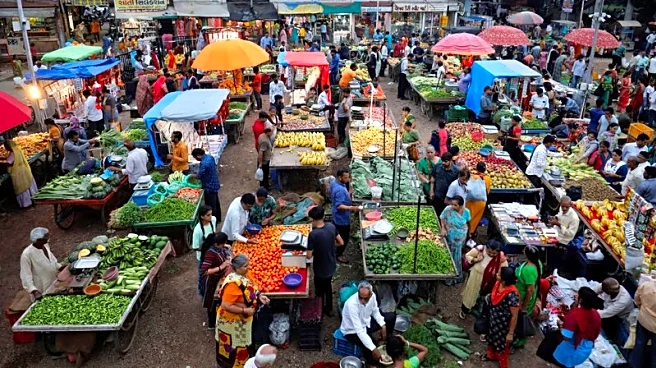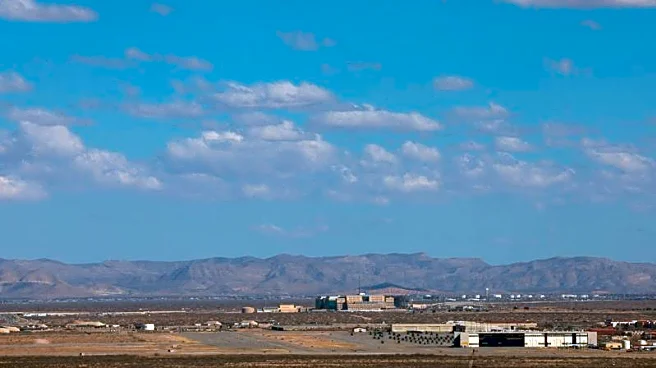What's Happening?
The EAT-Lancet Commission has released a new report emphasizing the need for a transformation in the global food system to ensure it is healthy, sustainable, and just. The report, an update from the 2019 Planetary Health Diet, highlights the importance
of nourishing the growing world population while staying within planetary boundaries. It suggests that a shift to the updated diet could prevent approximately 15 million deaths annually by improving nutritional adequacy and reducing non-communicable diseases. The report also integrates new data on distributive, representational, and recognitional justice, aiming to address inequities in access to healthy diets and decent work conditions, particularly affecting marginalized groups in low-income regions.
Why It's Important?
The transformation of the food system is crucial for addressing interconnected global crises such as climate change, biodiversity loss, and social injustice. The current food system contributes significantly to greenhouse gas emissions, and without change, it could hinder efforts to meet climate goals. The report underscores the need for equitable distribution of resources and opportunities, which is essential for a successful transformation. By ensuring fair wages and representation, the transformation could improve the health and well-being of marginalized communities and reduce environmental pressures. This shift is not only vital for environmental sustainability but also for enhancing human rights and social equity.
What's Next?
The report calls for building coalitions with stakeholders across various sectors to implement the recommended changes. It suggests developing national and regional roadmaps, unlocking finance for transformation, and rapidly executing joint plans. The Commission proposes eight solutions, including creating food environments that increase demand for healthy diets, protecting traditional diets, and implementing sustainable agricultural practices. These steps aim to build resilience in environmental, health, economic, and social systems, positioning the food system as a cornerstone for global well-being.
Beyond the Headlines
The report highlights the ethical dimensions of food system transformation, emphasizing the need for justice in resource distribution and decision-making processes. It calls for addressing power imbalances and ensuring meaningful participation of those most affected by food system injustices. The transformation also presents an opportunity to integrate innovation and governance across policy, finance, and enterprise, fostering a more resilient and equitable global food system.

















